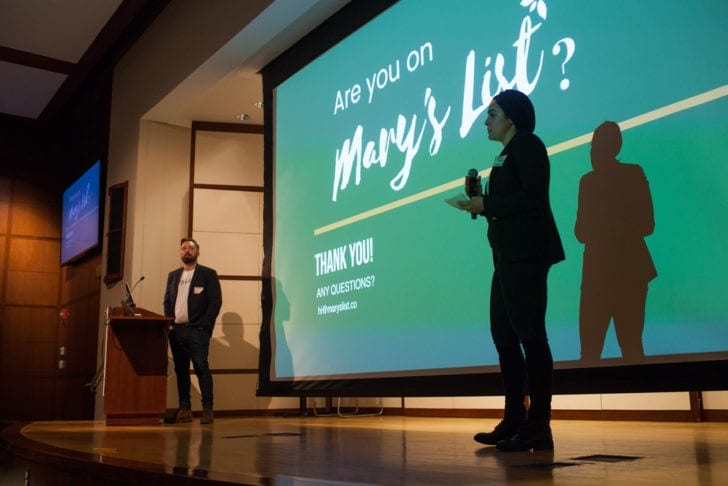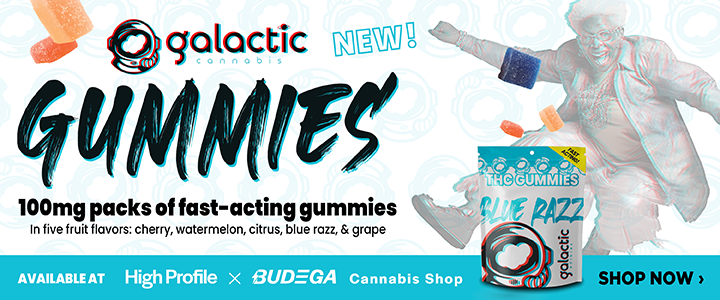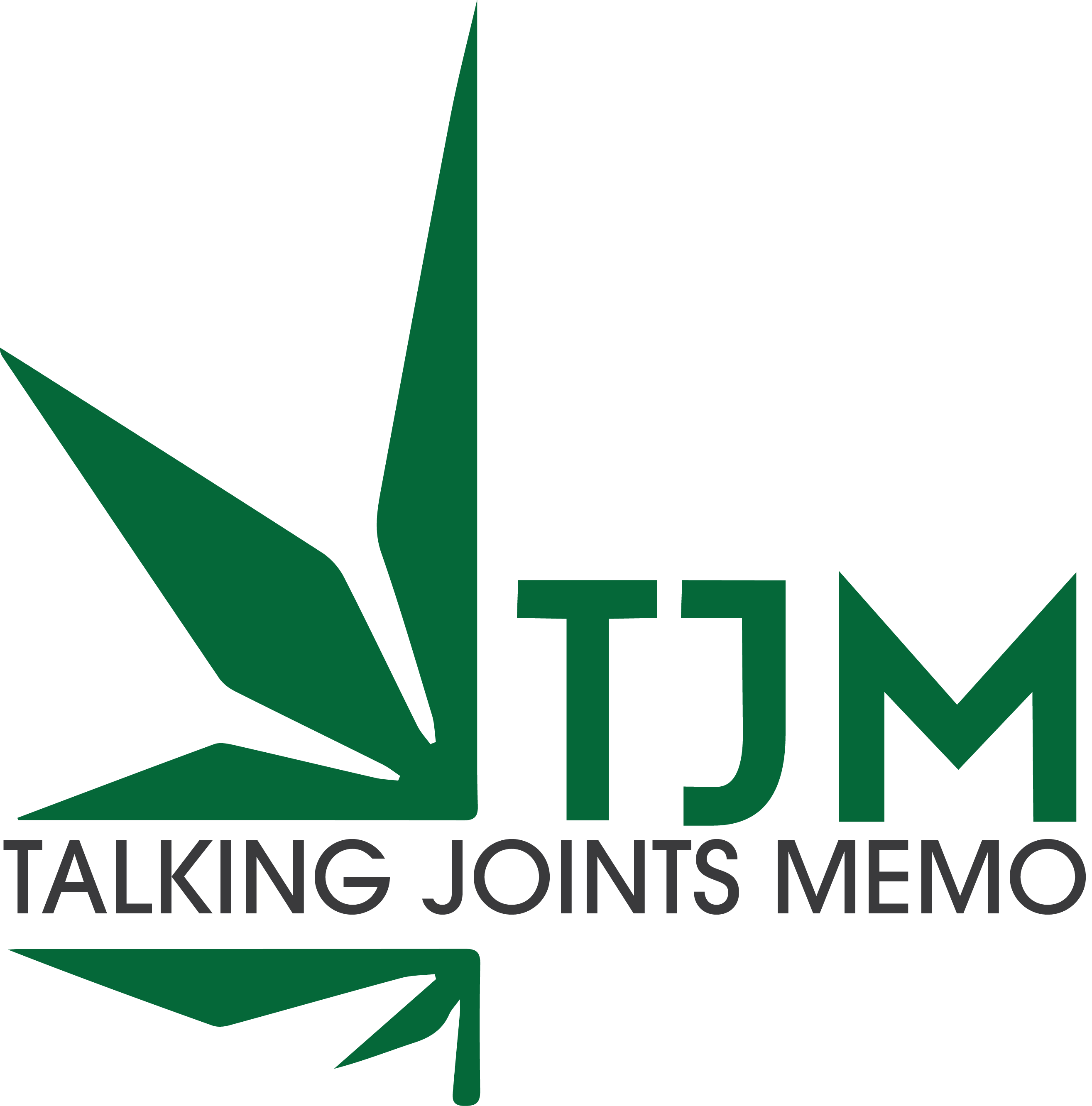
Another year, another $10,000 on the line in our region’s top campus cannabis competition. That’s not something anybody would have expected to hear even five years ago, but like all else in recreational states, things change, and we’re already in the third year of Boston University’s contest for budding companies with ancillary concepts or products, meaning “those that support the cannabis industry but do not come directly in contact with the plant,” “things like software, services, accessories, agricultural products, etc.”
With the deadline for the 2020 competition having closed at the end of September, we reached out to Taylor Aldredge, the cofounder and chief marketing officer for 2018 winner Mary’s List. We’re hardly partial to covering such exclusive happenings—only BU graduates and students are allowed to apply for this program; nevertheless, we think it’s a great idea and hope that other institutions will follow suit if such exercises become the accepted norm. In the meantime, as we wait for the announcement of this year’s finalists, here are some words of wisdom from Aldredge of Mary’s List, which essentially began as an industry staffing service but has evolved into something more nuanced.
What was your idea as you pitched it? In its original incarnation?
When we pitched Mary’s List to the Boston University Cannabis Startup Competition, we were already six months into developing the product/platform with our development team. If we look at the original incarnation, it was February of 2018 [and] we were living in Colorado watching a lot of different cannabis companies struggle to find and keep good talent in full-time jobs. We knew there had to be a better system. The rest of the world already accepted freelancing and contract work as a benefit to a company’s top and bottom line. Why couldn’t cannabis access the same benefits?
First, we thought it would be great to make it easier for companies to find good writers for license applications and marketing content, because those were the two greatest areas of need in the cannabis industry. As we worked on this idea, we kept finding other parts of a cannabis business that could use a contract worker or service provider. How can we make it easier to find an accountant who understands taxes for a cannabis company? How do companies find attorneys who know about cannabis business formation? How can an entrepreneur find a security consultant for their license application?
All of these different services for the cannabis industry kept popping up while we developed a platform around our original idea to find great writers. Every time we met a new service provider, we added it to the list of categories on the site. By the time we were sending in our application for the competition, we had 27 different service provider categories for cannabis business projects. We even found someone who was an edible molds maker for cannabis edibles brands. How great is that? We think we were lucky to be in the advanced stages that we were in prior to the competition because the competition polished up how we spoke about the business to other people. That was the greatest benefit for Mary’s List. Our idea went from an idea on paper to an actual business in front of judges.
What major changes has the brand undergone in the time since?
The brand itself is an extension of [CEO Denise Biderman]’s personality. She started the Mary’s List Instagram account, and she writes most of the copy that you see on the site and in emails. We do our best to make sure our brand sounds like a friend trying to help you out because that really is who we are and what we are about. It’s important to us, especially as a B2B company, that our brand sounds “familiar,” because it has helped us create a very engaged and supported community of creatives, entrepreneurs, service providers, and freelancers in the cannabis industry, who know we exist to see them succeed.
Since the competition to the present day, the brand has become much more activist than when we first started marketing Mary’s List. The longer we worked in the cannabis, the more our passion for certain issues in the industry rose to the top. We started the brand to help people access medicine while simultaneously advocating for those harmed and disproportionately affected by the war on drugs. We wanted to see expungement for cannabis convictions around the country, and we wanted to help entrepreneurs from all socioeconomic backgrounds have a fair shot at starting a business in the cannabis industry. Denise’s background practicing criminal law really drives our brand’s voice and how we partner with other organizations. We have two questions we ask of companies we work with now: How are you helping people get more access to this medicine, and How are you helping combat the wreckage waged by the war on drugs?
These questions have helped our brand immensely since winning the competition because we can partner with organizations that understand the culture at Mary’s List. We ask the questions because we want to know if: 1) a company believes that cannabis is a medicine that should be accessible to everyone; and 2) a company simply plans to increase their generational wealth off the backs of the legacy market, or are willing to fight for those who paved the way to legalization to have access to the same opportunities. People can get wrapped up in all the excitement around the business aspect of cannabis, and that’s great, but it all comes down to the patients and helping them best. If we’re not doing that, then what are we doing here?
As far as the platform itself, we’re relaunching Mary’s List in September focusing on sending projects for hire directly to people’s inboxes. Mary’s List will get a nice facelift with some new colors. All in all, our brand will have changed a lot since we were on stage presenting it to the judges.
How much of that change was facilitated by the accelerator?
The accelerator really helped us articulate how to speak about Mary’s List with other people. Up until getting into the program, we never presented the concept to anyone outside of our close friends and family. Once we were involved, we had to create slides, create graphics, figure out the best way to describe what we were building—we had to think about every aspect of our business and how to present it to other people. That seems really easy when you’re reading the “Congratulations!” email from Green Lion Partners and Boston University that you’re a finalist in the competition, but it’s another thing when you get off your first call with your advisors and realize this is going to be a lot of work. We could’ve easily decided not to listen to the critiques and constructive criticism given to us, but we wanted to win the competition. So, we became sponges and soaked up every piece of advice we received.
Overall, the accelerator provided by Green Lion Partners and BU acted like lighter fluid on an open flame for our company. Everything changed for us after we won. Everything. We got press mentions in Sensi Magazine and on CNBC. We got access to BU’s resources from the BUild Lab. We had advisors in Green Lion Partners to help us make our business a reality. We gained a reputation from that competition and that is everything in this game. The competition validated our idea and product. It’s safe to say a lot of changes in our brand started with getting involved with the competition.
Where do you see Mary’s List going from here? How do you kick it into overdrive in 2020?
The hardest part of being an entrepreneur is recognizing something isn’t working and changing course. Every bone in your body will want you to just stick it out a little longer, that things will change, and everything will turn out OK. However, sometimes you recognize that a change is needed because you can’t throw any more money at the idea in its current form.
After launching the platform in January 2019, our signup rate was great for a new company. After a few months, things started to fall off. Users weren’t completing profiles, businesses weren’t posting projects, and the site was not functioning the way we had envisioned. At the end of the day, we had a platform that functioned like any other freelancing platform online, but people didn’t want another profile to take care of and businesses didn’t have the energy to post projects and sift through responses. So, we decided to remake the product and build around its core function: finding help for projects.
People just want to work. They want to make money. They have all the communication tools and platforms they need to make that happen. Thus, we decided to give them what they want: all the projects we get sent, delivered right to their inboxes. We pair people up on our end if it’s a good fit, and we get people working together. The next phase for Mary’s List going into 2020 is to create a network of individuals and companies that can help with any cannabis project. Our community is everything. It’s why Mary’s List exists.
What advice do you have for cannabis startups going through this or other incubators like it?
Have fun, be flexible and open-minded, and stay humble. The point of going through an accelerator is to accelerate your business faster than if you were working on it by yourself. You’re a part of the accelerator to learn from entrepreneurs who know more than you. You have to be open to criticism and willing to adapt. The program is meant to make your business more successful, so do not take criticism personally. Otherwise, the accelerator will fail you, and it will be your own fault. If startups going through an accelerator can absorb and adopt all the critiques and advice, then they have a real shot at incredible success.


























